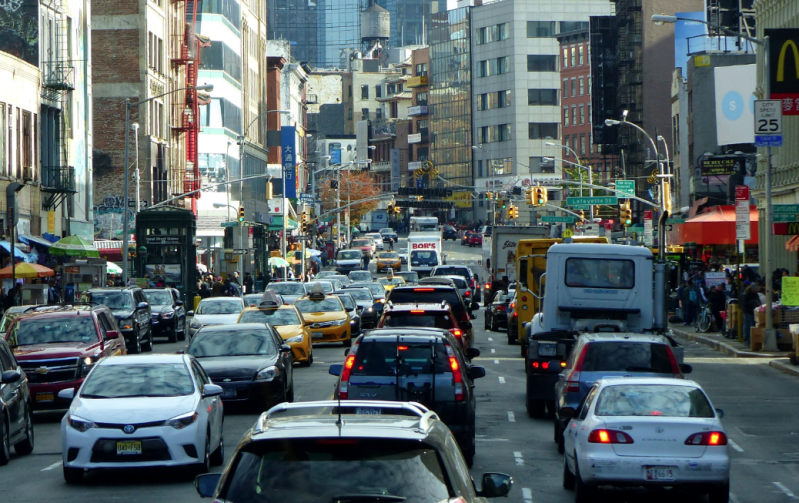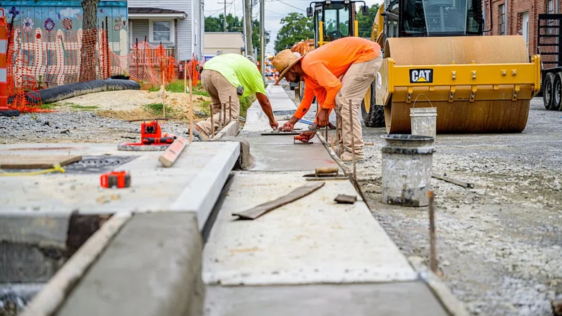The fight over congestion pricing is history — and the State Assembly will now make history by approving new tolls on drivers entering Manhattan’s central business district.
Speaker Carl Heastie confirmed the news after meeting with Democratic assembly members on Monday afternoon.
“The Assembly is ready to go forward on congestion pricing,” Heastie reportedly told the Albany press corps.
The program needs 76 votes to pass. Of the 107-member Democratic conference, only six or seven are hard “no” votes, according to sources familiar with members’ thinking.
It’s not clear which, if any, fence-sitting assembly members changed their minds today to give Heastie confidence pricing would pass, but momentum is clearly favoring congestion pricing. On Monday, the program picked up support from Manhattan Assembly Member Daniel O’Donnell, who had previously told Streetsblog he would wait until a bill was written before deciding on his vote.
In the final stretch of budget negotiations, we'll be working in Albany through the weekend. I’m focused on our decaying #MTA & the dire need for direct funding. NY needs a final #congestionpricing plan now so that we can get to work & #FixTheSubway. @TransAlt @RidersNY
Heastie said the details of the pricing program are still to be determined. Those details — such who if anyone will be exempt from the tolls — could make or break the program’s effectiveness in both raising money and reducing congestion.
A bill should be printed by the end of Thursday, Heastie told reporters.
With the April 1 budget deadline fast-approaching, state legislators were facing mounting pressure to come up with some sort of substantial and sustainable revenue stream for the New York City region’s ailing transit system. Governor Cuomo, Mayor de Blasio, and Senate Majority Leader Andrea Stewart-Cousins have all come out in support of the governor’s broad congestion pricing framework, which would raise around $15 billion towards the MTA’s $40-billion-plus capital needs.
A handful of pols in Heastie’s assembly majority has been reluctant to come on board, however. As recently as two weeks ago, the speaker was defending the concerns of reluctant outer-borough and suburban legislators like David Weprin and Rodneyse Bichotte., and suggesting that other, smaller funding sources would be a satisfactory conclusion.
The speaker himself is a longtime supporter of congestion pricing, going back to the days of the Bloomberg administration. In the decade since, the assembly’s membership has become younger and more transit-oriented. Even longtime congestion pricing opponents, such as Jeff Dinowitz of the Bronx, have softened their stance and stated that fixing the beleaguered subways and buses is their top priority — above even protecting the wallets of car commuters (who tend to be wealthier overall than their transit-riding neighbors, yet had undue influence in car-friendly Albany).
“There’s an absolutely softening in the conference,” Assembly Member Amy Paulin told Streetsblog earlier this month. “Could there be an alternative proposed? I presume, but right now the conversation is going to center around congestion pricing.”


 Danny O’Donnell
Danny O’Donnell



